Chapter 12 Andrew Jackson
Terms : Hide Images [1]
| Served in Congress after he was President of the United States | 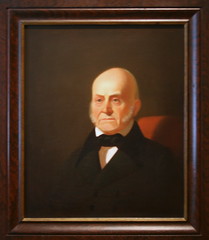 | |
| Former military leader and 7th President of the United States |  | |
| The idea of spreading political power to all the people and ensuring majority rule. | ||
| The practice of giving government jobs to political backers | ||
| He invented a writing system for the Cherokee language. | ||
| Congress passed this act in 1830 which would require the Native Americans to relocate west. | ||
| Oklahoma, parts of Kansas and Nebraska |  | |
| The journey of the Cherokees from their homeland to Indian territory. |  | |
| Seminole leader who resisted the removal of his people from Florida in the 1830s. He died under suspicious circumstances after being tricked into surrendering (1837). |  | |
| South Carolina Senator - advocate for state's rights, limited government, and nullification | 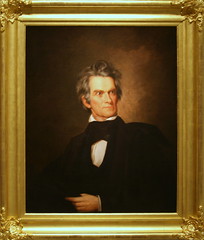 | |
| Tariff passed by Congress in 1828 that favored manufacturing in the North and was hated by the South | ||
| 1832, Calhoun and South Carolina declared a state could suspend federal laws. a right of a state to reject a federal law that it considers unconstitutional | ||
| U.S. Senate debate of January 1830 between Daniel Webster of Massachusetts and Robert Hayne of South Carolina over nullification and states' rights. |  | |
| a senator from Massachusettes and the most powerful speaker of his time who was involved in the Webster-Hayne debate |  | |
| Term that is used when part of a country leaves the rest of the country to form their own country. The South's secession led to the outbreak of the Civil War. | ||
| increased prices for goods and services combined with the reduced value of money | 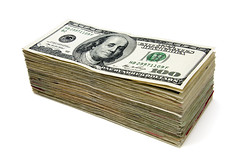 | |
| 8th President of the United States (1782-1862), 8th U.S. President. 1837-1841. Democratic | 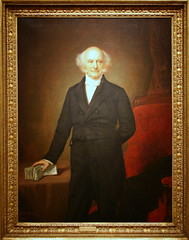 | |
| Widespread fear about the state of the economy. Bank of the U.S. failed, cotton prices fell, businesses went bankrupt, and there was widespread unemployment and distress. | ||
| a long-term economic state characterized by unemployment and low prices and low levels of trade and investment |  | |
| An American political party formed in the 1830s to oppose President Andrew Jackson and the Democrats, stood for protective tariffs, national banking, and federal aid for internal improvements | ||
| 9th President of the United States | 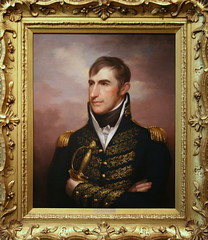 | |
| elected Vice President and became the 10th President of the United States when Harrison died (1790-1862) |  |
